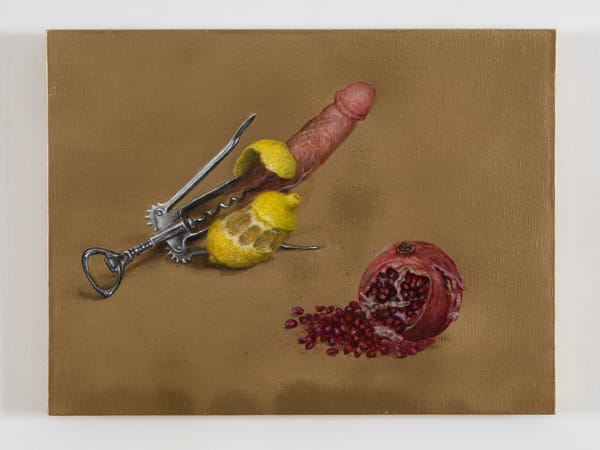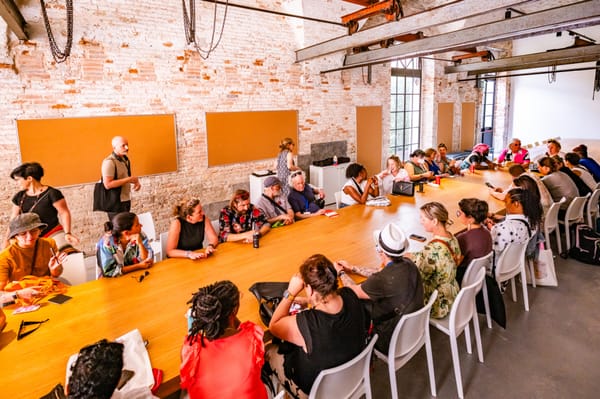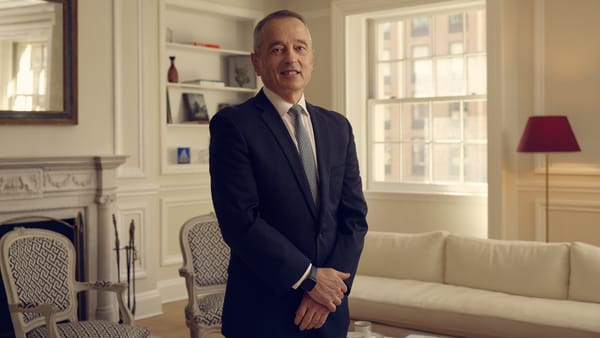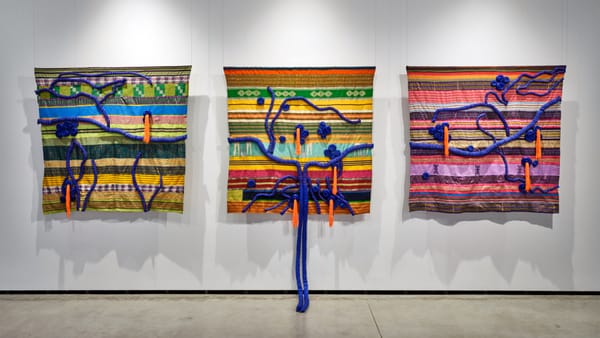An Exhibition That Helps Us Rethink Our Relationship to Facebook
The main aim of the show is to offer a creative, clever perspective on the reasons behind the alienated and addicted relationship we sustain with social media platforms.
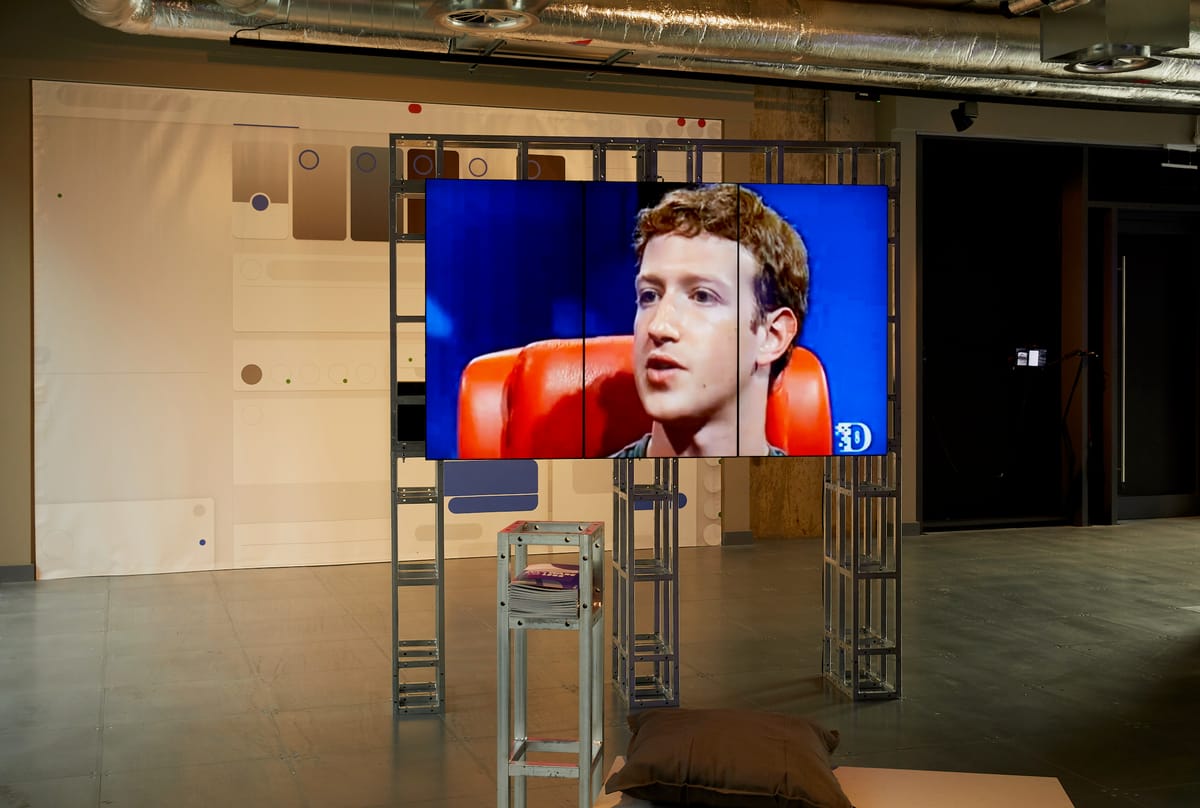
Presented as a zeitgeisty tech exposition, Software for Less is a solo exhibition by United States artist Ben Grosser which deals with the clash between the predatory culture of large, online companies that are getting more and more profit and political power, and the effects that their exploitative practices have on users of their platforms and devices.
Grosser has been exploring the role of Web-based corporate logic in everyday life and politics for over 10 years now, focusing on how Facebook has radically changed the way we use and think about the Internet. His approach, mocking and bitter at the same time, seems to come directly from a particular moment in the recent history of digital culture. In 2011, Facebook transformed itself from a hugely successful online platform to a gargantuan media juggernaut that has dominated social media this past decade, for better or for worse.
Grosser was part of a small group of artists who, following the tradition of the 1990s net.art, were interested in digital culture as an emanation of codes and languages. "How do social media design and algorithms affect the way we see reality?" is one of the recurring questions in the works of Grosser, who has moved between playing the role of Cassandra, the Trojan priestess of Apollo in Greek mythology whose true and bleak prophecies were not believed, to that of someone who has witnessed the changes he had expected and even inspired.
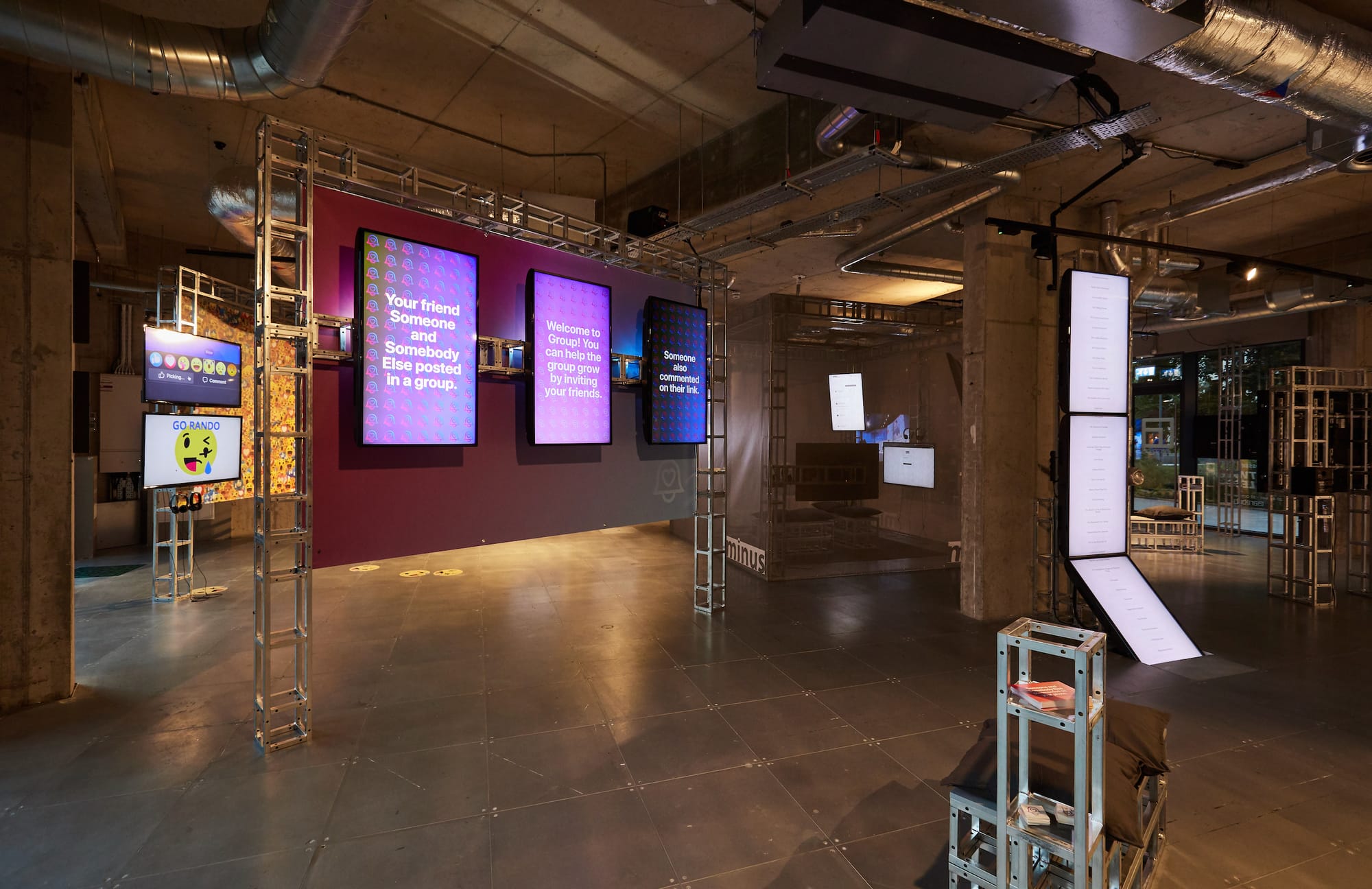
Software for Less is an opportunity to learn more about a perspective on digital technology that combines technical expertise with a certain passion for metalanguage. For example, Grosser’s "Safebook" (2018) is a Web browser plugin that purifies Facebook pages by filtering out texts and images to leave only the interface elements: gray buttons, blue circles, white squares. These design elements lose their primary function and, once released, become geometric shapes with which we interact in a playful and inconsequential way. In a certain sense, it is a utopia of interaction: Without relying on archaic forms of communication such as texts, images, and reactions, we can move freely between galaxies of round balloons, in a space where it seems impossible to meet friction.
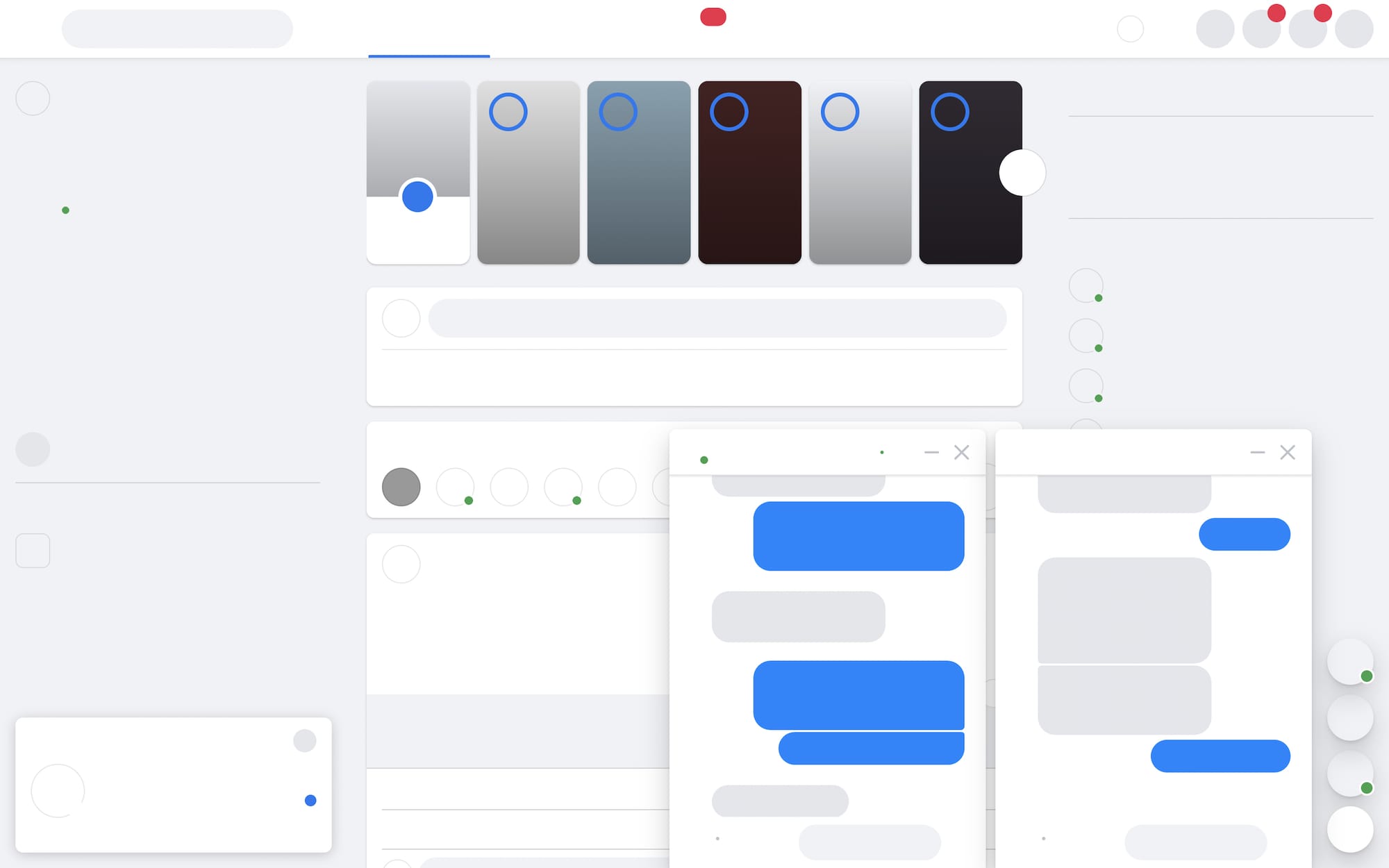
As well as "Safebook", there are many other works by Grosser in which his interest in cropping and eliminating the content in order to highlight aspects otherwise hidden becomes evident. "Order of Magnitude" (2019) is a supercut of Mark Zuckerberg saying the words "more," "grow," and every utterance of a metric such as "two million" or "one billion," resulting in a hypnotic, albeit alienating experience. The speed with which the words are spoken is reminiscent of the precision of a machine scanning a document for keywords to highlight.
Among Grosser's most recent works is "Minus" (2021), a finite social network where users get only 100 posts for life. The platform shows how few opportunities they have left instead of how many likes and reshares they have accumulated. The limit imposed on the user presents problems of scarcity in a context — the online world — which has made overabundance a fundamental part of its functioning. By using Minus, our usual interaction with Facebook, Twitter, Instagram, and other traditional platforms must be redefined: What is really worth sharing? What thoughts or events in our life can aspire to be part of the 100 posts we have available on Minus? Scarcity leads to a reassessment of how we experience our life, no longer perpetually prone to being streamed because it is easy to press two buttons and go live, but made of moments that do not perpetually and implicitly ask to be shared with our public.
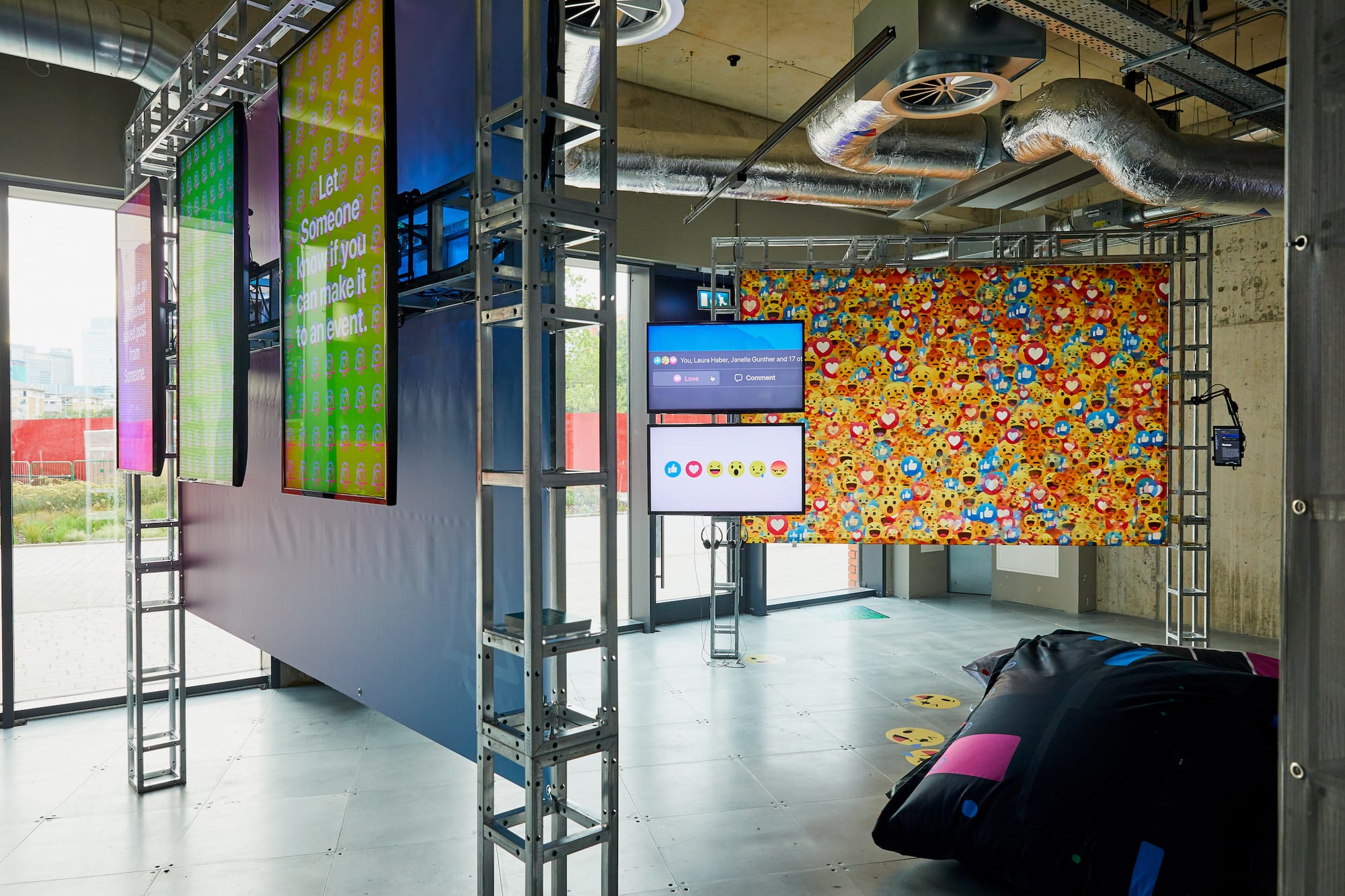
Ultimately, the exhibition doesn’t want to provide answers to the stream of menacing news regarding the increasingly pervasive role of Facebook in the way we express ourselves and communicate with others. Instead, the main aim of the show is to offer a creative, clever perspective on the reasons behind the alienated and addicted relationship we sustain with social media platforms. Ben Grosser has a formidable ability to explore the junctures between the demands of social media’s marketing teams and our social aspirations. His is a consolatory, optimistic point of view that demands that the public take an active role to have a better, less monetized future.
Software for Less continues at Arebyte Gallery (Java House, 7 Botanic Square, London City Island, E14 0LG) through October 23.


